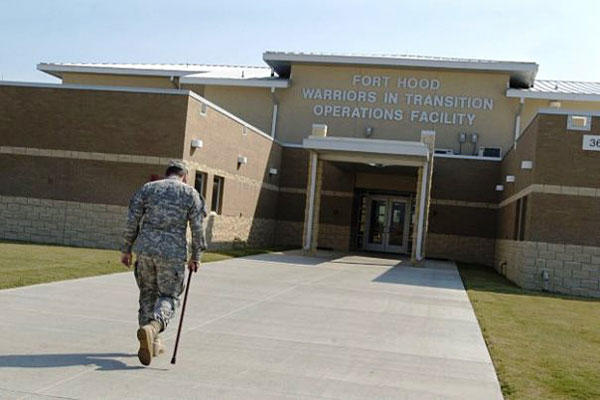A top Army official confirmed to Congress on Tuesday that hundreds of wounded warriors at three Texas treatment centers had been harassed and abused by staff who considered them "slackers" as was reported by the Dallas Morning News and a local television station.
Col. Chris Toner, head of the Army Transition Command, acknowledged that there had been a incidents of "disrespect, harassment and belittlement of soldiers" at Warrior Transition Units (WTUs) at Fort Bliss, Fort Hood and the Brooke Army Medical Center in Texas from 2009-2013.
Toner singled out abuses at the WTU at Fort Bliss during a hearing before the House Armed Services' subcommittee on military personnel.
"There were challenges at Fort Bliss without a shadow of a doubt," Toner said.
The abuses were limited to the 2009-20013 time frame, Toner said, and he was now "confident that we have the programs going in the right direction" at Hood, Bliss and Brooke.
The mistreatment of wounded warriors at Texas bases was first reported in a joint investigation by NBC 5 and the Dallas Morning News relying on Freedom of Information Act documents detailing the official complaints of soldiers and others involved in the WTU programs.
The documents quoted Dr. Stephen Saul, a psychiatrist hired to train staff at Fort Hood's WTU, as saying that many leaders at Fort Hood lacked an understanding of mental health issues and refused to believe that post-traumatic stress disorder was real.
Those suffering from PTSD were told to "man-up and move on," Stahl said. "The idea is that you're weak, you're cowardly, you're worthless, you're not strong and it's your fault."
The result was that those with PTSD would doubt the worth of the treatment prescribed, Stahl said.
"The same Army that's telling you you're a slacker or a dirt bag gives you treatment and medication. Are you going to take it?" he told Congress.
Toner and representatives of each military service testified at the first hearing called by Rep. Joe Heck, R-Nevada, the new chairman of the military personnel subcommittee.
Heck, a physician and an Iraq veteran who holds the rank of brigadier general in the Army Reserve, has made it clear that one of his priorities as chairman will be to focus on problems in the Military Health System.
Heck said that the Army's WTUs and similar programs in the other services "still serve a need" even as the wars in Iraq and Afghanistan have wound down, but he added that "it has not been without fits and starts, it has not been without problems."
The military's wounded warrior programs began in 2007 with the goal of assisting troops to either stay in the military, if that was their desire, or to ease their transition to civilian life.
James Rodriguez, deputy assistant defense secretary for Warrior Care Policy, said his office routinely carries out site inspections to ensure the quality of care at wounded warrior programs.
With the wind down of the wars, the programs were now more focused on ill and injured troops and those with behavioral problems, Rodriguez said.
However, there was still a concern that Congress may choose to cut funding for the wounded warrior programs going forward, said James Williamson, command adviser to the Marine Corps' Wounded Warrior Regiment.
"One wonders about the future of warrior care," Williamson said.
-- Richard Sisk can be reached at Richard.Sisk@monster.com.




























